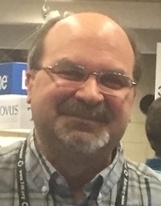Robert F. Waldeck, Ph.D.

I am a faculty member in the Biology Department and Director of the Neuroscience Program. I started at the University of Scranton in 2001. Since 2002 I have had students working along side me in research projects focusing on functional regeneration of the nervous system, neural basis of behavior, and synaptic plasticity.
Citizenship is crucial to a thriving modern society. Scientific information is essential for any citizen to contribute most usefully to their surrounding community and to live their own best possible life. A scientist, in particular, needs to be a critical thinker and problem solver and also an observer of the interconnectedness of scientific concerns as they influence community. For these reasons, my overriding goal is to guide students into becoming good citizens and good stewards of science. My drive is for student scientists to recognize how the smallest, seemingly insignificant matters can summate and lead to monumental events for themselves, their local community, the scientific community, and for the world at large. As a college teacher and scientific researcher I am well positioned to realize this goal through teaching, research, and service.
My approach to teaching is to engage students in the course content and the relationship of that content to the field of science as well as to the world. To foster the development of critical thinking skills beyond the classroom I maintain an extensive involvement in the Honors program where I oversee a number of tutorials and research projects. I also realize that I must model good scholastic citizenship for my students. Thus I continually advance my own knowledge by pursuing a wide variety of additional opportunities on and off campus to learn new skills, keep up with technology, and create and maintain professional relationships. I am gratified that students know I am concerned about their welfare and seek me out for advice regardless of their academic interests.My research program is a key component to the development of an orientation among students toward critical thinking and problem solving. Students have been included in almost all of my research and I cycle four to five students a year through a variety of real world techniques via hands on involvement in my working research laboratory. To hone their critical thinking skills, as well as their communication skills, I offer students the opportunity to present their own research at regional and national meetings, and have even had one student who has successfully co-authored a paper with me.
For information on my specific schedule and activities for this semester see this link